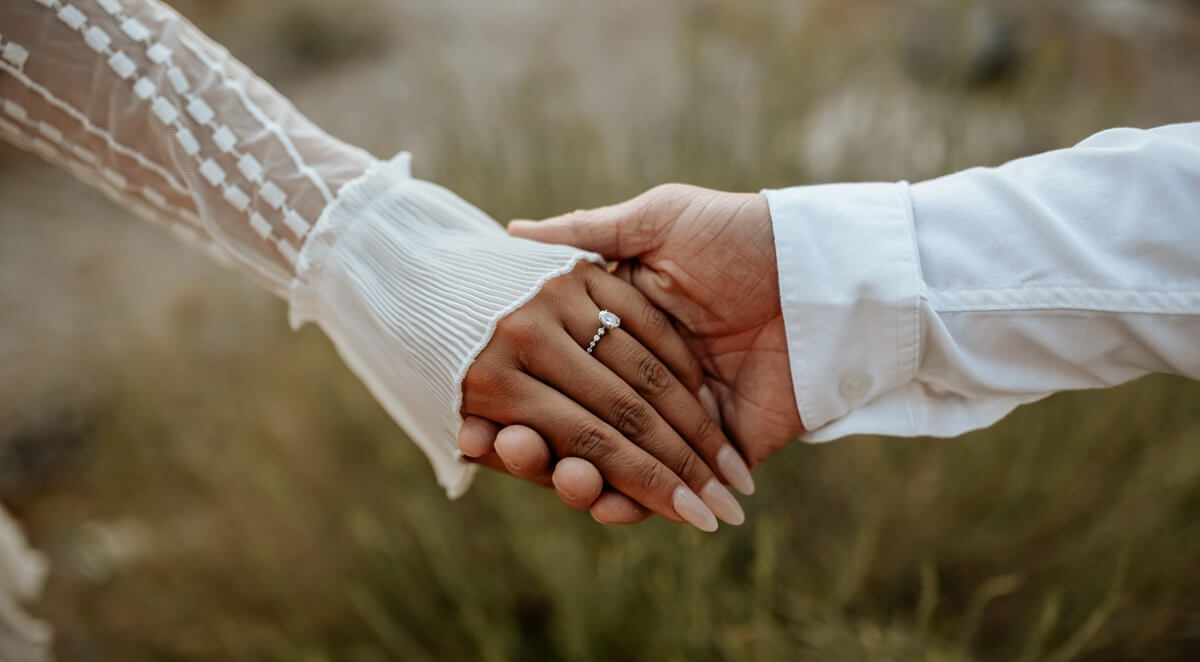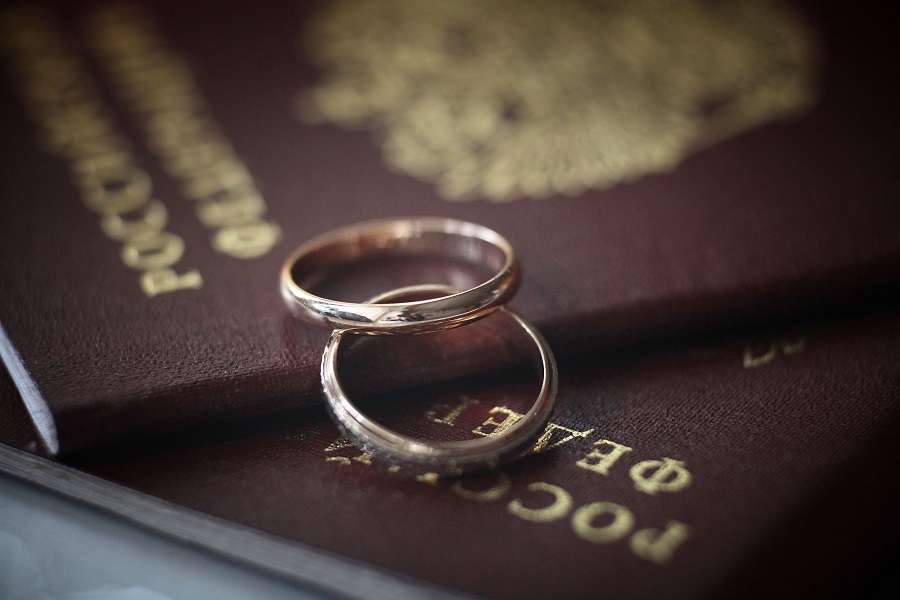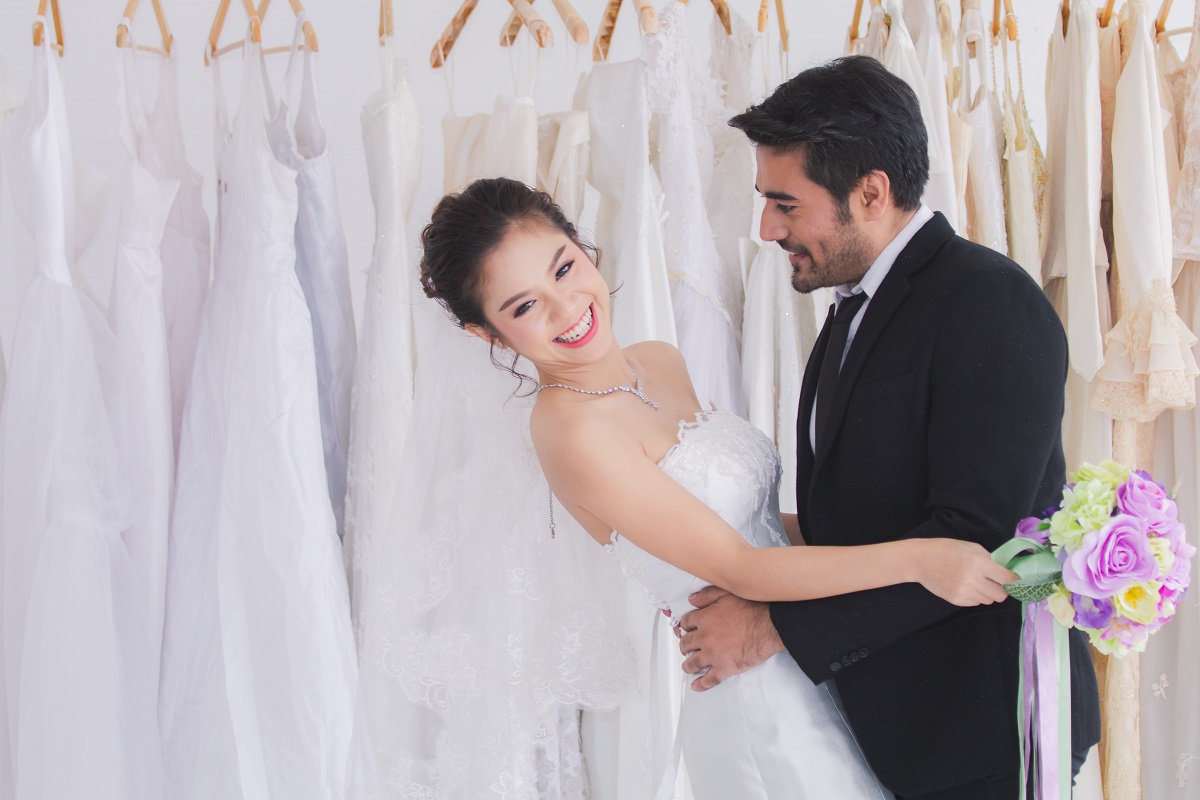
An interview is an essential part of obtaining virtually any nonimmigrant visa for entry to the United States. But K-1 fiancé visa interview questions dive deeper into your history and long-term intentions. They can even seem a little personal. For some people, that’s a little scary.
Are you nervous or anxious about your K-1 interview? That's completely normal. If you prepare yourself and know your fiancé well, you’ll find that the fiancé visa interview questions are actually very simple to answer. With preparation and guidance, you can confidently approach this step. In this article, we’ll break down the types of fiancé visa interview questions you may face, why they are asked, and how to prepare effectively.
Why Fiancé Visa Interview Questions Get So Much Attention
Who Should Attend the K-1 Interview
Common Fiancé Visa Interview Questions
How to Prepare for the Interview
What to Expect on Interview Day
Tips for Answering Fiancé Visa Interview Questions
Common Mistakes to Avoid
How CitizenPath Helps K-1 Visa Applicants
Why Fiancé Visa Interview Questions Get So Much Attention
Visa fraud, particularly marriage fraud, has historically been a problem for U.S. immigration officials. Marriage fraud happens when at least one of the parties of a marriage entered into the marriage for the purpose of circumventing immigration laws to falsely acquire immigration benefits (like a green card). Marrying for the primary purpose of obtaining a green card is a clear case of fraud.
Therefore, U.S. immigration officials focus their questions on your relationship. They need to be convinced that your relationship is genuine and that you are both getting married because you're in love and plan to live a life together. The fiancé visa interview questions allow the consular officer to verify the legitimacy of your relationship and ensure that both parties meet the K-1 visa requirements.
Who Should Attend the K-1 Interview
The K-1 beneficiary must attend the interview along with any K-2 children included on the same I-129F petition. The U.S. citizen sponsor is not required to attend the interview and generally may not attend. However, some U.S. embassies or consulates may allow the U.S. sponsor to attend. Check with the U.S. embassy near you for specific rules about fiancé visa interviews.
Common Fiancé Visa Interview Questions
Below, we’ve categorized the types of questions you’re most likely to face during the interview, along with tips to answer them effectively. You may also download an extensive list of 89 sample K-1 fiancé visa interview questions below.
Personal Questions
The consular officer may begin by getting to know the K-1 applicant and information about their background. Typical questions the officer may ask about your background include:
- What is your full name and date of birth?
- Where do you currently live and work?
- How many siblings do you have, and what are their names?
Preparation Tip: Review basic personal information about each other to ensure your answers align. Small discrepancies can raise unnecessary concerns.
Relationship History Questions
The consular officer will ask several questions about your relationship to help determine if it is real. Examples of fiancé visa interview questions about your relationship include:
- How did you meet your fiancé?
- When did your relationship become serious?
- What are some memorable trips or experiences you’ve had together?
Preparation Tip: Be ready to share your story in detail. Officers are looking for genuine responses that demonstrate knowledge of your relationship timeline.
Family and Friends
It's typical, but not mandatory, that fiancés have met some of their partner's family. Understanding how well you know each other’s families is often part of the process:
- Have you met your fiancé’s family? If so, when?
- How do your friends feel about your relationship?
- Did your fiancé visit your home country to meet your family?
Preparation Tip: If you haven’t met family members, explain why, but highlight any communication you’ve had with them (e.g., calls, texts, or online meetings).
Wedding and Future Plans
A couple that has gone through a normal courtship will know many things about each other. You’ve discussed many of the big issues that come with marriage. For example, you should probably know about your fiance’s income, desired number of children, and other plans for the future. The consular officer may ask questions about your future plans. Examples of fiancé visa interview questions about your wedding and future plans include:
- When and where do you plan to get married?
- What are your fiancé’s goals for the future in the U.S.?
- Where will you live after marriage?
Preparation Tip: Be specific about your wedding date and location, even if the details aren’t finalized. Mention future plans, like shared housing or career goals.
How to Prepare for the Interview
Being prepared is the key to a smooth interview experience. Follow these steps to ensure you’re ready:
Review Your Application
Carefully go over the information provided in your I-129F petition and K-1 visa application. The officer may ask questions based on these forms. If your answers contradict the application, it could delay the process.
Practice Mock Interviews
Download our Sample K-1 Fiancé Visa Interview Questions. Conduct practice interviews with your fiancé or a trusted friend. Focus on answering clearly and confidently without sounding rehearsed. There’s no need to memorize your answers. Just be familiar with them so that you are prepared to provide a natural answer.
Gather Evidence of Your Relationship
The petitioner would have sent some evidence of your relationship with the I-129F petition. If you've spent additional time together, bring photos, letters, or other documents that demonstrate your relationship. Include items like:
- Pictures of you together on trips or with family
- Screenshots of text or email exchanges
- Receipts from shared expenses, like vacations or gifts
Prepare Mentally
Stay calm and polite during the interview. Officers understand that applicants may feel nervous, so take a deep breath and answer honestly. If you don’t know an answer, it’s better to admit it than to guess.
What to Expect on Interview Day
The interview typically takes place at a U.S. embassy or consulate. Here’s what to expect:
- Arrival: Arrive early to account for security checks.
- Document Submission: Submit the required documents, such as your passport and interview appointment letter.
- Interview: The consular officer will ask questions from behind a glass window. Be prepared for follow-up questions if something needs clarification.
- Outcome: You may receive a decision immediately or be asked to provide additional documentation.
Pro Tip: Dress professionally, as first impressions matter. A clean, neat appearance conveys seriousness about the process.
Tips for Answering Fiancé Visa Interview Questions
Answering interview questions confidently is key to success. Use these tips to ensure you present your relationship authentically and professionally.
- Be Honest: Always answer truthfully. Fabricating answers can result in a denial.
- Stay Focused: Answer only what is asked. Providing too much information can lead to unnecessary complications.
- Show Confidence: Speak clearly and maintain eye contact. Confidence helps convey authenticity.
If you are uncomfortable about an answer because you think it could be a problem, this is a good indicator that it’s best to speak with an immigration lawyer. As long as you know your fiancé well and are getting married for legitimate reasons, you should have no problem answering the K-1 fiance visa interview questions.
Common Mistakes to Avoid in Your K-1 Interview
Avoiding common mistakes during your fiancé visa interview can make a big difference. Here’s what to watch for to ensure a smooth and successful process.
- Inconsistent Answers: Mismatched responses between you and your fiancé can raise red flags.
- Forgetting Key Details: Forgetting birthdays, anniversaries, or other milestones may appear suspicious.
- Being Overly Nervous: While some anxiety is normal, excessive nervousness can lead to unclear answers.
The K-1 visa interview is your opportunity to prove the authenticity of your relationship. By preparing thoroughly and understanding the types of questions you may face, you can approach the interview with confidence. Remember, this process is about demonstrating your commitment to each other and your shared future. With a little preparation and the right mindset, success is within reach.
How CitizenPath Helps K-1 Visa Applicants
Navigating the fiancé visa process can feel overwhelming, but you don’t have to do it alone. CitizenPath offers step-by-step guidance tailored to your unique situation. From preparing your K-1 visa application to ensuring you’re ready for the interview, we’re here to support you. Sign up for our newsletter for expert tips, free checklists, and resources that empower you to succeed.
CitizenPath provides simple, affordable, step-by-step guidance through USCIS immigration applications. Individuals, attorneys and non-profits use the service on desktop or mobile device to prepare immigration forms accurately, avoiding costly delays. CitizenPath allows users to try the service for free and provides a 100% money-back guarantee that USCIS will approve the application or petition. We provide support for the K-1 Visa Petition Package (Form I-129F), Adjustment of Status Package (Form I-485), and several other immigration services.
Want more immigration tips and how-to information for your family?
Sign up for CitizenPath’s FREE immigration newsletter and
SAVE 10%
on our immigration services






